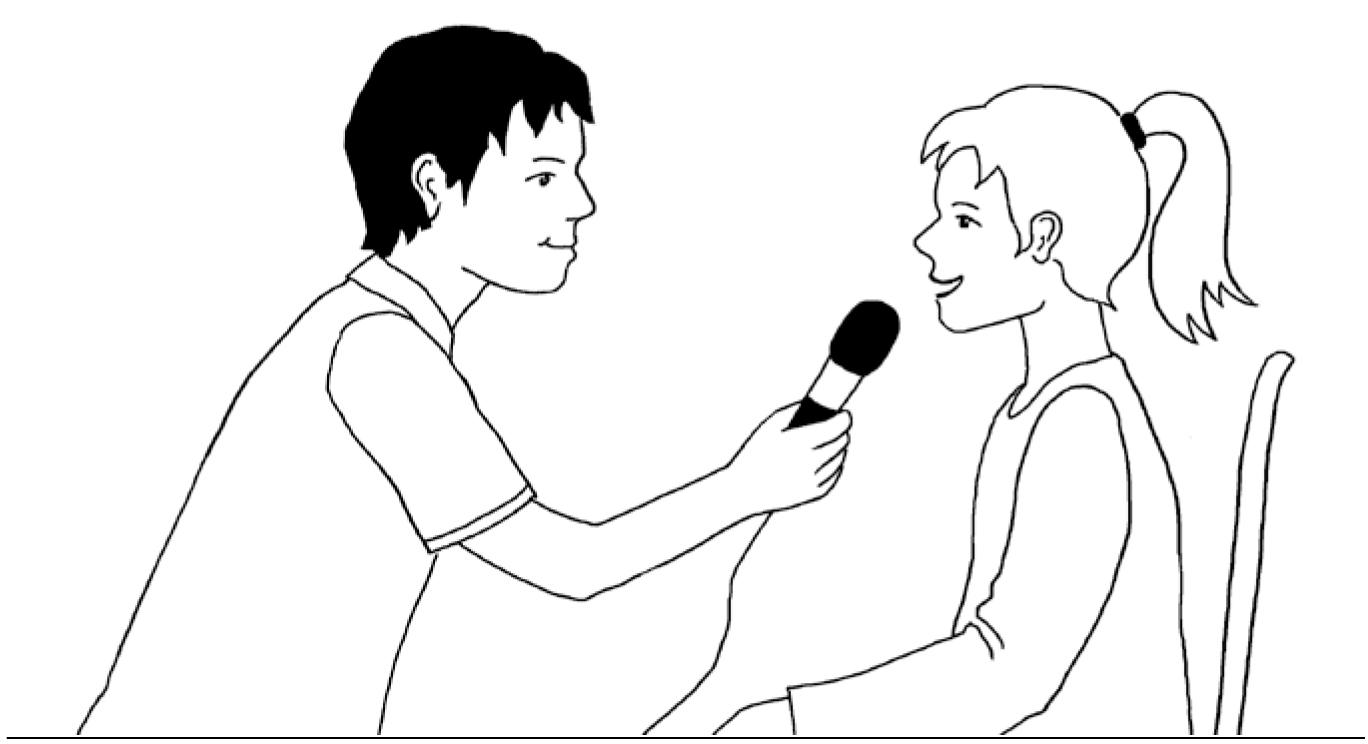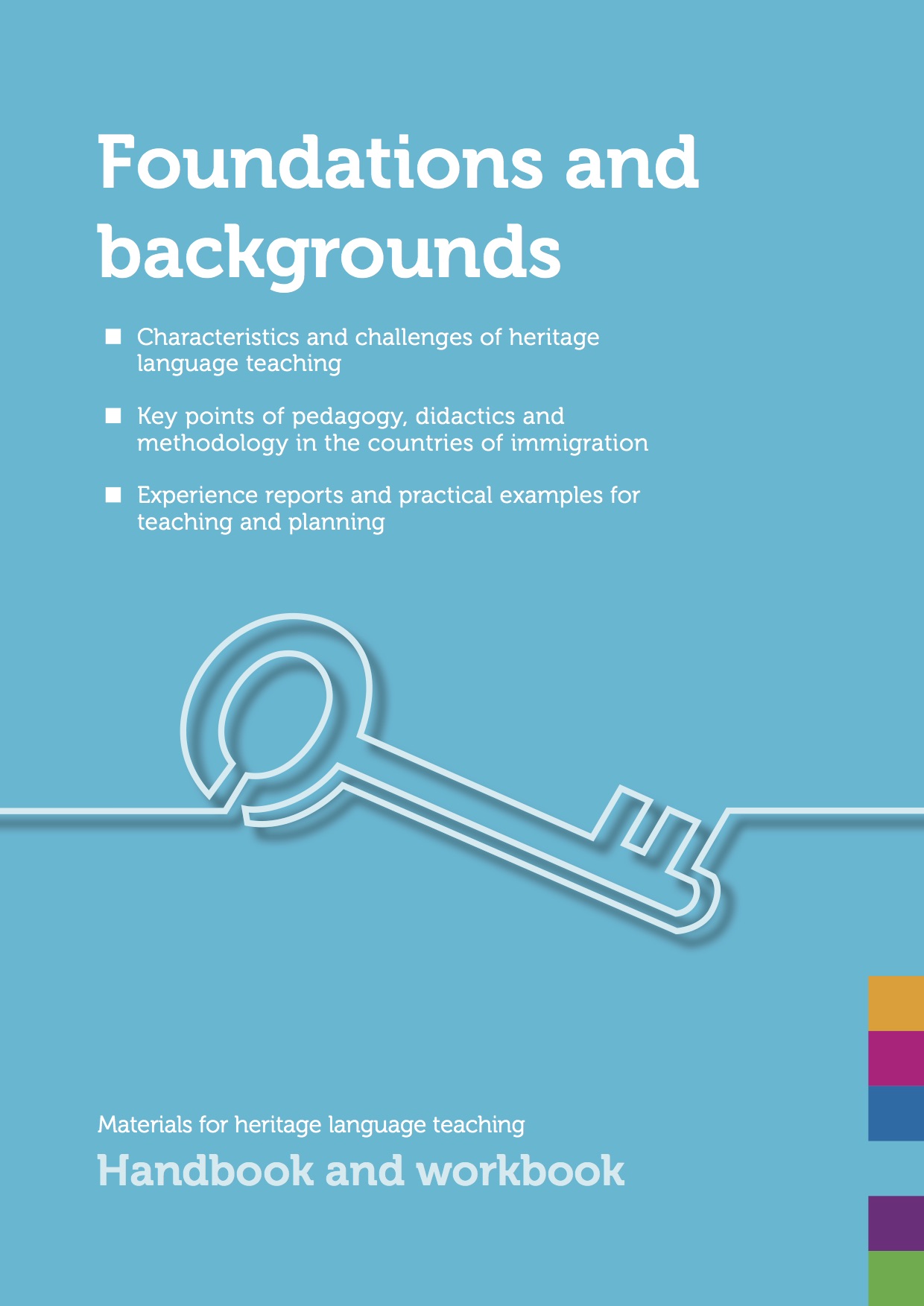Hints:
- The instructor announces the project one or two weeks in advance so that the students can inform themselves at home and maybe bring an object of significance for them (e. g. a souvenir) to class. The project is also a good preparation for interviews with the parents and for researching the migration history of others in the residential district (see 2.3 and 2.7a and b below). It also lends iself very well for the collaboration with regular classroom instruction.
Procedure:
- The instructor informs the students about the project. It will be discussed and demonstrated with examples as to what kinds of questions can be asked in the interviews. Appropriate topics for the interviews would include: the reasons for and the date of the migration, contacts to the country of origin, life in the immigration country, perspectives for the future, etc. (See also the questions suggested in 2.7a).
- The form in which the questions are posed must also be discussed and practiced (avoid narrow questions that can be answered with yes or no; prompts that animate the counterpart to tell a story are much more productive!).
- The students sit in age-appropriate or mixed groups of four (possibly in pairs) and develop a list of 4–6 questions for the interview. Before these questions, they should briefly note the age, region of origin, and the place of birth of the interviewee.

- In pairs, the students then interview each other about the migration topic, following the previously developed talking points. The interview should last 5–10 minutes, then the roles are reversed.
- If there is sufficient time, the students can create a poster about their interview partner, and present him/her by means of the poster. They can be further elaborated under the title “migration story of the week” or displayed for a parents‘ event.
- A final discussion of the class as a whole, moderated by the instructor, in which the above agreed thematic areas (reasons for migration, etc.) are cross-compared. Prompts: what kinds of commonalities and differences can you determine? Why do people emigrate; what are the most frequent reasons for migrating? Where, how, and what would you be now, if your (grand)parents had not emigrated? (possibly a text about the topic.)






